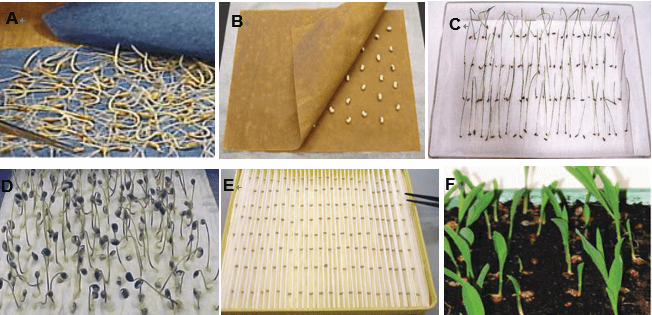Germination is defined as the emergence and development of specific biological structures, which indicate a seed’s ability to grow into a normal plant under favorable conditions. Seed germination testing aims to determine how seeds will perform under certain growth conditions, based on which the planters can plan for the number of seeds to plant. Moreover, seed germination testing can also be informative for labeling and marketing purposes.
Lifeasible is equipped with an excellent seed laboratory. We offer cutting-edge technologies and customized seed germination analysis on a variety of substratum and treatment conditions.
 Figure 1. Different substratums for seed germination testing (Elias et al., 2012).
Figure 1. Different substratums for seed germination testing (Elias et al., 2012).
At Lifeasible seed Lab, we ensure that all substratum, containers and moistening agents are sterile and free of phytotoxic properties. Following high-quality seed germination testing assays, we will provide our customers with a detailed report regarding:
At the seed laboratory of Lifeasible, we are committed to exceeding your expectations by offering the highest-quality seed germination testing services. Welcome to contact us for technical inquiries, collaborations, and more informations.
Reference
Lifeasible has established a one-stop service platform for plants. In addition to obtaining customized solutions for plant genetic engineering, customers can also conduct follow-up analysis and research on plants through our analysis platform. The analytical services we provide include but are not limited to the following:
Get Latest Lifeasible News and Updates Directly to Your Inbox
Adaptive Evolutionary Mechanism of Plants
February 28, 2025
Unraveling Cotton Development: Insights from Multi-Omics Studies
February 27, 2025